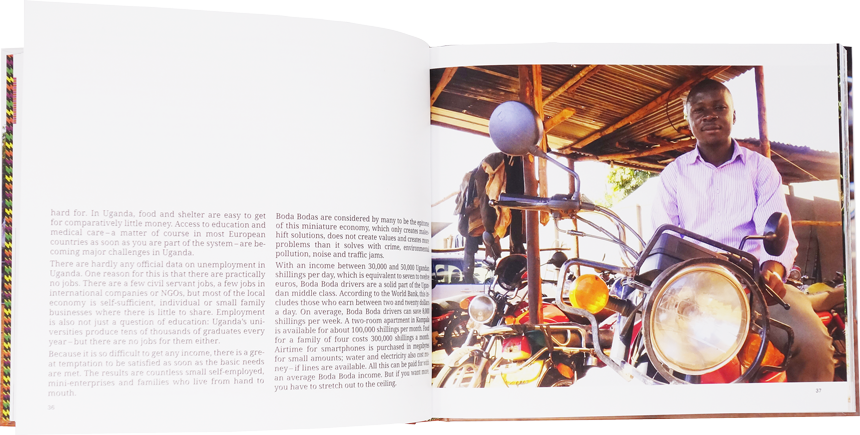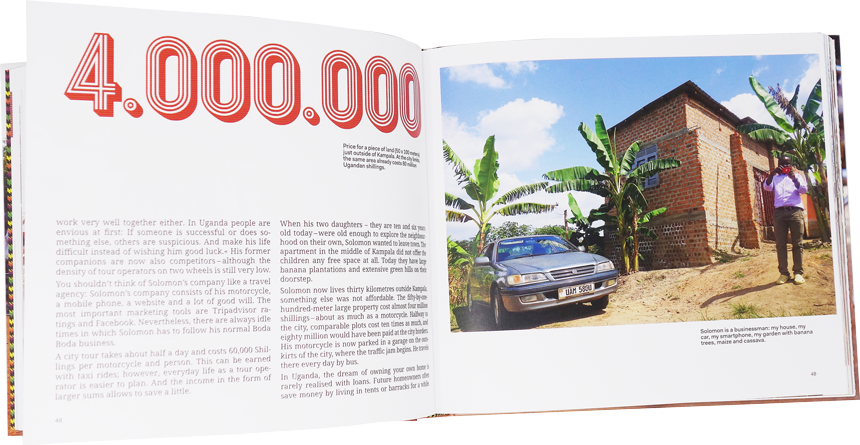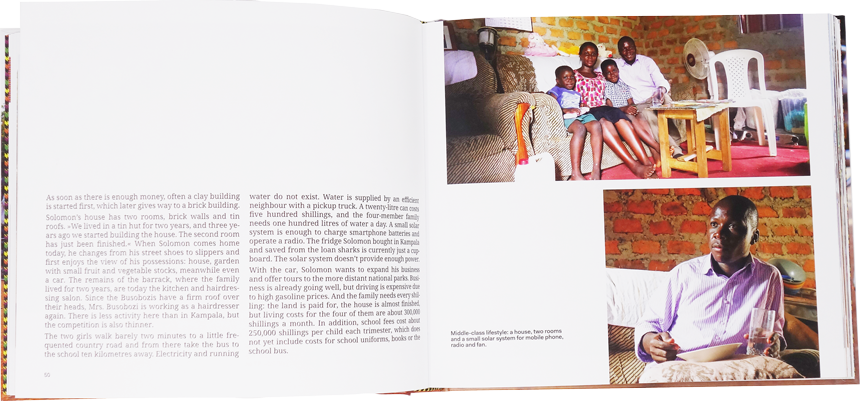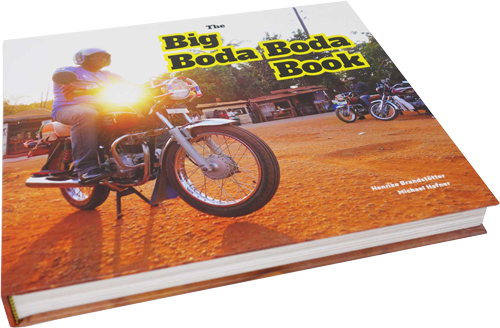Solomon really didn’t want to get into the Boda Boda business. Long days in tough traffic in Kampala, the bad reputation of the industry, gangs, police – no, all this was not very tempting for the then 30-year-old. And then, one day, the cell phone rang at dawn. »Your store is on fire. There’s nothing more we can do.«
That little beauty shop was Solomon’s fortune. His neighbour ran a Chapati stand, over charcoal embers in a tin bucket he made the Ugandan version of pancakes, which are eaten either pure or wrapped around an omelette – then they are called Rolex. The best time for the Chapati business is in the evening, when many city dwellers on the way home enjoy a quick snack.
The Chapati stand owner had worked for a long time last night, cleaned his stand late at night, threw away egg shells and emptied the ashes from the tin bucket behind the huts. Then he had gone home. But that night the ashes had not yet cooled. A gentle breeze fanned hidden embers, the wooden huts caught fire, and two livelihoods, two dreams of small businesses that could be made bigger with work and tenacity, went up in fire and smoke.
»Of course it was his fault«, Solomon says of his neighbour today. »But he had no money and of course no insurance. So there was nothing we could do. That’s how I ended up back on this bike.«

Today Solomon has a good stage, these are the stands for the motorcycle taxis, in the government district of Kampala. He is one of over two million Ugandans who earn their living on motorcycles.
He now lives thirty kilometres outside Kampala, something else was not affordable. The fifty-by-onehundred-meter large property cost almost four million shillings – about as much as a motorcycle. Halfway to the city, comparable plots cost ten times as much, andeighty million would have been paid at the city borders. His motorcycle is now parked in a garage on the outskirts of the city, where the traffic jam begins. He travels there every day by bus.
»We can make ends meet and we don’t give up hope,« says Solomon. »But I’m also very glad that we can already harvest a little in our garden.« Manioc, sweet potatoes and corn are easy to care for, the banana plantation established a year ago still takes its time. »But we have already eaten one of our own bananas ...« And a cock spends his last days in the garden. He’ll end over the charcoal fire one of the next holidays.

Basically, everything you need for an appropriate middle-class lifestyle is there: house, car, garden; the family of four will not grow either. For many Ugandans whohave achieved a little prosperity, double-digit numbers of children, as they were common a generation ago, are out of the question.
By Ugandan standards, the property is virtually isolated because there are no neighbours in sight and it is a two-minute walk to the nearest church. But some plots are already sold and will be built on in the near future. Solomon doesn’t mind. He has realized a dream and is working on realizing the next dreams with the next development steps in his company. When he sitson the wide, worn armchair in his living room, he is a cosmopolitan who does not yet know the world. He wants to go to Amsterdam because he thinks it’s nice. He would also like to go to New York to see how life and traffic work in a real big city, and to California because he knows nice pictures from there. And he wants to go to the mountains because he wants to see snow.




